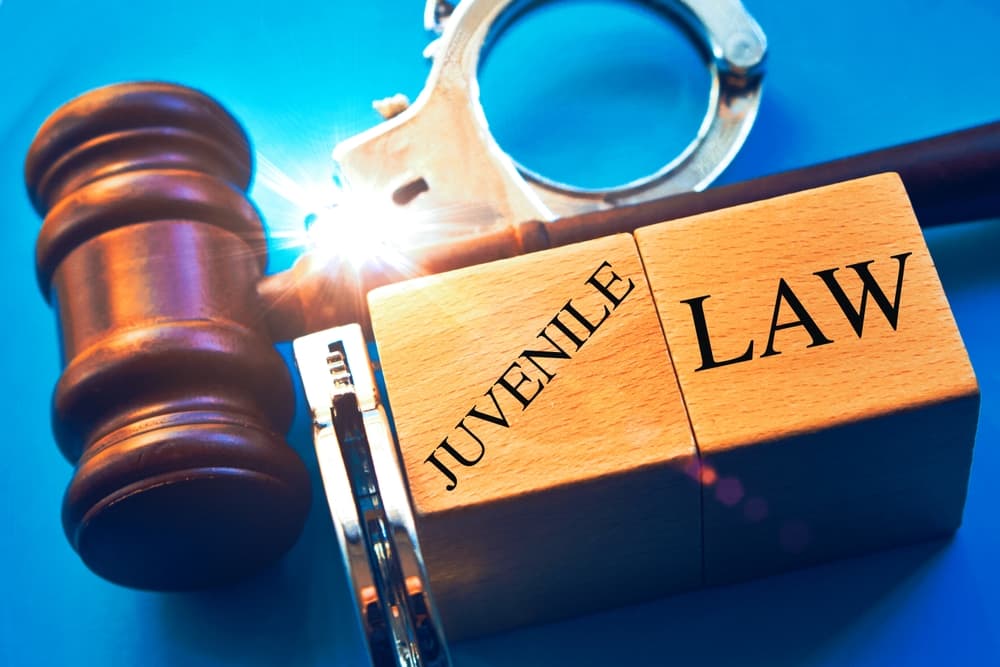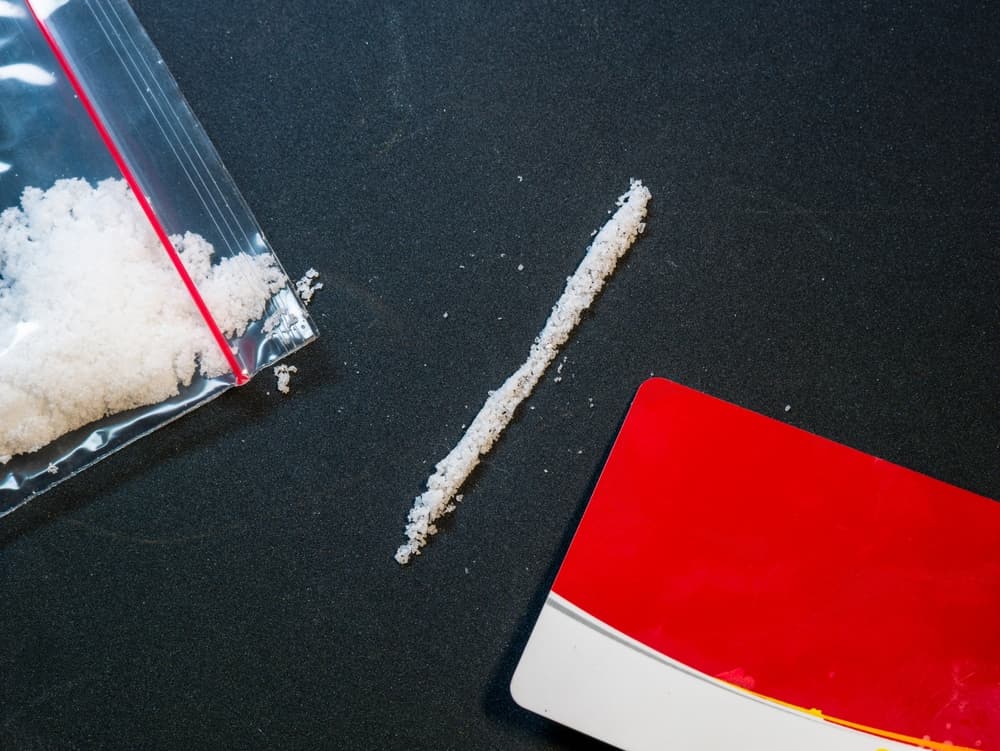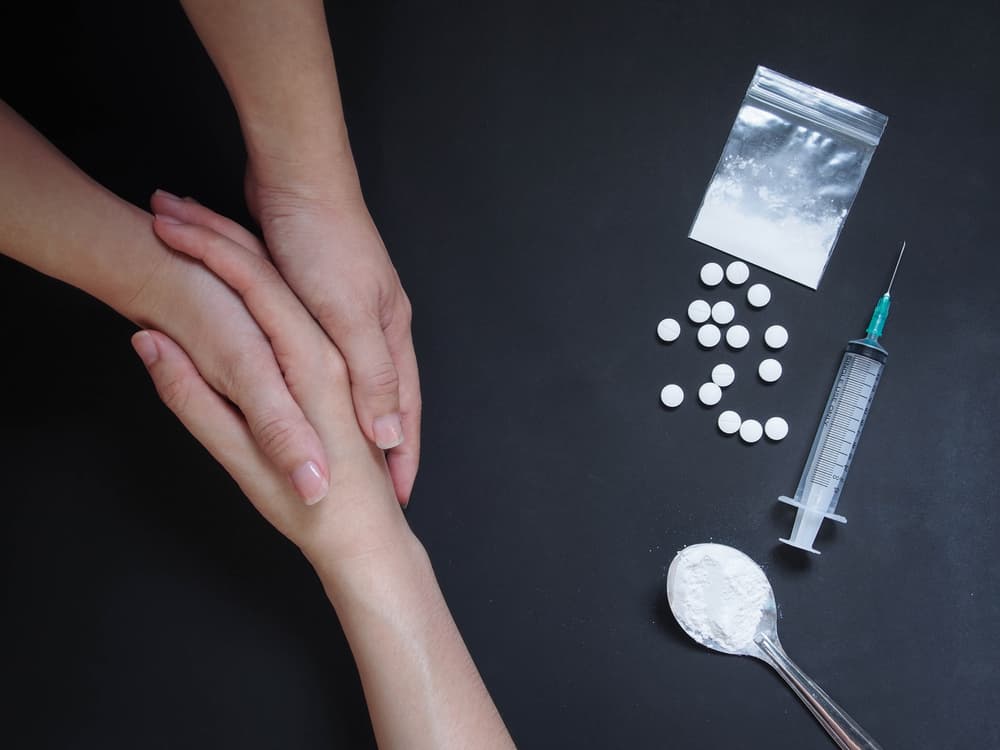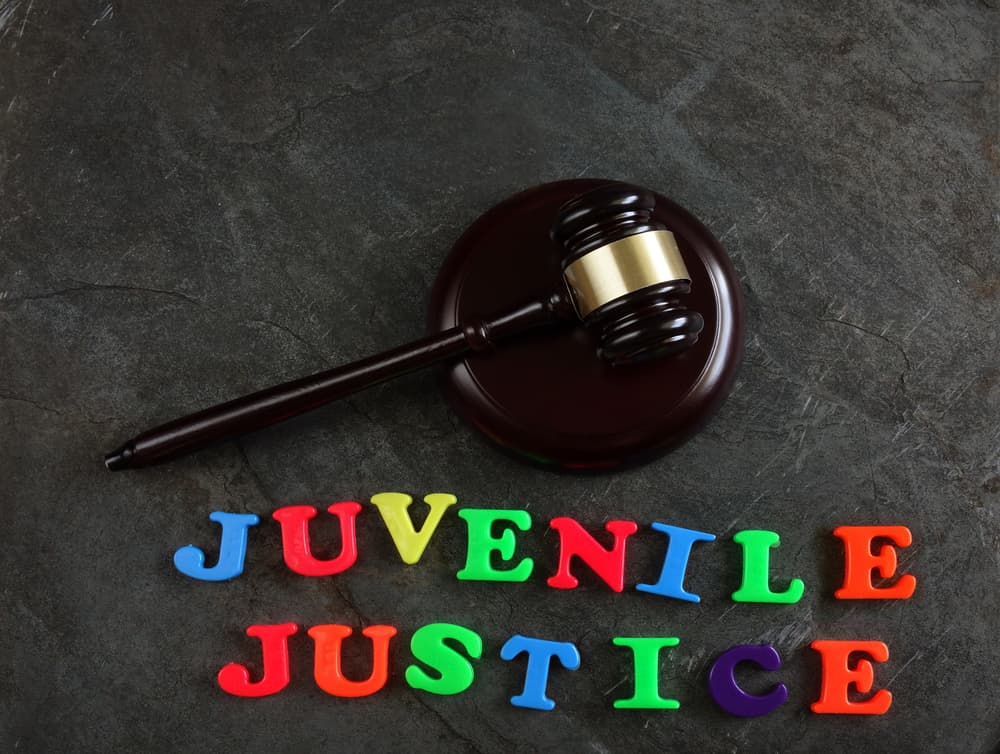Juvenile crime is a significant issue in communities across Texas, impacting both large urban areas like Houston, Dallas, and San Antonio, as well as smaller towns throughout the state.
While the types of juvenile crimes committed can vary widely—from theft and vandalism to more serious offenses such as assault or robbery—drug-related crimes are a recurring and growing concern.
The rise in juvenile drug offenses has created challenges for families, educators, and lawmakers alike, and understanding how drugs contribute to juvenile crime is key to addressing these issues effectively.
In this blog, we’ll explore the connection between drugs and juvenile crime in Texas. We’ll look at how drugs can influence criminal behavior, the types of drug-related crimes juveniles in Texas may be charged with, and the legal consequences of such offenses.
A skilled juvenile defense lawyer in Abilene with expertise in Texas law can guide you and your child through the legal system with care and understanding.
Understanding Juvenile Crimes

In Texas, the legal system treats juveniles differently than adults, with a focus on rehabilitation and second chances rather than strict punishment. According to the Texas Family Code, a "juvenile" is anyone under the age of 17. The goal of the Texas juvenile justice system is to guide minors away from criminal behavior and toward more productive, law-abiding lives.
However, this doesn't mean that juvenile crimes are taken lightly. There can still be significant consequences when a juvenile is involved in criminal activity.
The types of crimes committed by juveniles are wide-ranging. While juvenile crime can involve offenses like truancy, shoplifting, or vandalism, drug-related crimes are becoming an increasingly significant part of the picture.
Juveniles in Texas may face charges related to the possession, distribution, or trafficking of controlled substances. Drugs play a central role in many of these offenses, either because the juvenile is caught with illegal substances or because their criminal behavior stems from or is exacerbated by drug use.
In Texas, the distinction between adult and juvenile crimes is important. Juveniles charged with crimes are generally not sentenced to prison, but rather to juvenile detention centers or community-based programs.
However, the severity of the crime, the juvenile’s criminal history, and other factors can influence the type of punishment they face. In drug-related cases, the law often looks at whether the juvenile is struggling with addiction and whether there are opportunities for rehabilitation.
This approach can have a significant impact on the eventual outcome of a case.
The Relationship Between Drugs and Juvenile Crime

There is a strong correlation between drug use and juvenile crime in Texas. For many minors, drugs are both a catalyst for and a consequence of criminal behavior. Drugs impair judgment, lower inhibitions, and create an environment in which impulsive or reckless actions are more likely to occur.
Additionally, the use of certain drugs can lead to physical and psychological dependency, which can drive a juvenile to commit crimes to obtain the substances they are addicted to.
One of the primary ways drugs lead to juvenile crime is through peer pressure. Teenagers are particularly vulnerable to influence from their social circles. In high schools across Texas, drugs such as marijuana, prescription opioids, and synthetic substances like ecstasy or methamphetamine are often passed around.
The desire to fit in or be accepted can lead juveniles to try drugs, and once they have used them, the likelihood of committing additional crimes increases.
For example, a juvenile who is caught stealing from a store may not be motivated by the need for material goods, but rather by a desperate need to fund their drug habit.
This type of crime, known as "drug-related theft," is common among juveniles, especially those who are addicted to substances like meth or heroin, which have high costs.
Other crimes, such as assault or vandalism, may also be committed while a juvenile is under the influence of drugs, as impaired decision-making leads to actions that might otherwise be avoided.
Texas has also been hit hard by the opioid crisis, which has had a significant effect on drug-related juvenile crime. Communities across the state, from Houston to rural towns, have seen an increase in opioid-related offenses. Many juveniles who start with prescription painkillers may quickly move to heroin or fentanyl, substances that are both highly addictive and linked to violent crime.
In fact, many drug trafficking operations involve minors who are either coerced or recruited to distribute illegal substances. These trafficking operations can involve not only heroin and opioids but also methamphetamine, a drug that has become a major issue in parts of Texas, such as along the U.S.-Mexico border.
Drugs often alter a juvenile’s behavior in ways that increase the likelihood of them committing more serious crimes. This is especially true for substances like alcohol, cocaine, or methamphetamine, which can have profound effects on impulse control and judgment.
The link between drug use and violence is particularly concerning—juveniles under the influence of certain drugs may be more likely to engage in violent acts, whether it’s an assault, robbery, or even a homicide.
Drug-Related Offenses in Texas Juvenile Law

In Texas, drug-related offenses can lead to serious consequences for juveniles, and the laws surrounding these offenses are laid out in both the Texas Penal Code and the Texas Health and Safety Code.
The specific charges a juvenile may face will depend on the type and quantity of drugs involved, as well as the juvenile’s prior criminal history.
One of the most common charges for juveniles is drug possession. If a minor is caught in possession of controlled substances such as marijuana, cocaine, or meth, they may face criminal charges.
While marijuana possession laws in Texas have become more lenient in recent years (especially for medicinal use), possession of other drugs, including heroin and methamphetamine, can result in felony charges.
Depending on the amount and type of drug involved, juveniles can be charged with anything from a Class B misdemeanor (for small amounts of marijuana) to a second-degree felony (for larger quantities of harder drugs).
Drug trafficking and distribution charges are also serious and can result in even harsher penalties. If a juvenile is caught distributing drugs or involved in a trafficking operation, the legal consequences may include placement in a juvenile detention facility, probation, or participation in a rehabilitation program.
In cases of drug trafficking, particularly when involving opioids or methamphetamine, the charges can be extremely severe, as these substances are associated with large-scale criminal enterprises.
The Texas Juvenile Justice Department (TJJD) is responsible for overseeing the care, custody, and rehabilitation of juveniles who are incarcerated or under community supervision.
While the TJJD focuses on rehabilitation, the penalties for serious drug crimes can still be steep, with juveniles potentially facing time in a juvenile detention center, probation, or even a commitment to a juvenile correctional facility if they are convicted of drug trafficking or distribution.
Additionally, Texas has implemented diversion programs aimed at helping juveniles avoid traditional incarceration and instead receive treatment and counseling. These programs are typically available for first-time offenders or those who have committed minor drug offenses.
Diversion programs allow juveniles to avoid a criminal record if they comply with treatment plans, which may include drug counseling, community service, and other restorative practices.
Treatment vs. Punishment: Approaches to Juvenile Drug Offenses

Texas has long placed a priority on rehabilitation for juvenile offenders, particularly those involved in drug crimes.
The idea is that young people have a greater capacity for change and that providing them with the tools to overcome addiction and make better decisions is more beneficial in the long term than subjecting them to harsh, punitive measures.
As a result, there are several programs available in Texas designed to help juveniles involved in drug-related offenses.
One of the most important programs in Texas is the Juvenile Drug Court, which operates in major cities like Houston, Dallas, and Austin. These courts offer an alternative to traditional sentencing by focusing on rehabilitation rather than punishment.
Juveniles in drug court are typically required to complete a treatment program that includes counseling, drug testing, and educational components. They may also be assigned to a mentor or required to participate in community service.
The goal of the Juvenile Drug Court is to break the cycle of addiction and criminal behavior, providing minors with the support and resources they need to turn their lives around.
If the juvenile successfully completes the program, the charges may be reduced or even dismissed, and they may avoid having a permanent criminal record. This is a significant benefit, as a criminal record can have long-lasting consequences for a juvenile’s future, particularly when applying for jobs or college.
In contrast, punitive measures, such as long-term detention or incarceration, are less common for juveniles in Texas. Research has shown that juvenile offenders who are incarcerated are more likely to re-offend once they are released, especially if they have not received adequate treatment or counseling.
While there are situations where a juvenile may be placed in a detention facility for more severe offenses, Texas generally favors rehabilitation, focusing on the mental health and social factors that contribute to criminal behavior.
Steps to Take if Your Child Is Facing Drug-Related Juvenile Charges
If your child is facing drug-related charges in Texas, it’s important to take immediate steps to protect their future. First and foremost, it’s crucial to contact a qualified attorney who understands the Texas juvenile justice system and can help guide you through the process.
An experienced attorney can help you explore options such as diversion programs, juvenile drug courts, or rehabilitation treatments, which may lead to a more favorable outcome.
In addition to legal counsel, it’s also essential to consider your child’s emotional and psychological well-being. Many juveniles involved in drug-related crimes have underlying issues, such as mental health problems or a history of trauma, that need to be addressed to prevent further criminal behavior.
In Texas, there are numerous support programs and community resources designed to help juveniles recover from addiction and address the root causes of their criminal activity.
If your child is placed in a diversion program or juvenile drug court, it’s important to stay involved and engaged throughout the process. Ensure they attend counseling sessions, follow through on community service, and meet the court’s requirements.
The more actively you are involved, the better your child's chances of successfully completing the program and avoiding harsher legal consequences.
Reasons to Hire a Lawyer if Your Child Is Facing Drug-Related Juvenile Charges
If your child is arrested or charged with a drug-related crime in Texas, it can be a highly stressful and confusing time. The juvenile justice system is complex, and navigating it without legal guidance can result in serious consequences for your child’s future.
One of the most important steps you can take to protect your child’s rights and ensure they receive a fair process is to hire an experienced juvenile defense lawyer. Below are several key reasons why it’s critical to have legal representation when facing drug-related juvenile charges in Texas.
1. Understanding the Juvenile Justice System

The Texas juvenile justice system differs significantly from the adult criminal justice system. Juveniles are treated with an emphasis on rehabilitation rather than punishment, but this does not mean the process is always straightforward.
A juvenile defense attorney who understands the nuances of Texas law can help you and your child navigate the system. They can explain the legal procedures and potential outcomes, and help you understand the various options available to your child.
An attorney who practices juvenile law in Texas will be familiar with the local courts, judges, and how juvenile offenses are handled in different counties, such as Harris County, Bexar County, or Travis County.
This familiarity with local legal practices can be crucial in helping your child achieve the best possible outcome.
2. Protecting Your Child’s Rights
One of the most important reasons to hire a lawyer is to protect your child’s legal rights. Even though juveniles have fewer constitutional rights than adults in some cases, they still have the right to a fair trial, the right to remain silent, and the right to due process.
An experienced juvenile defense attorney can ensure that the arresting authorities follow proper legal procedures.
If law enforcement violated your child’s rights during the arrest, such as failing to read them their Miranda rights or conducting an illegal search, an attorney can file motions to suppress any evidence obtained improperly, which could lead to reduced charges or even dismissal of the case.
Furthermore, a lawyer can make sure that your child is not coerced into making statements or confessions that could be used against them in court. Juveniles, especially those under significant stress or influence, may not fully understand the implications of their words, and a lawyer can prevent any unnecessary risks.
3. Negotiating for a Favorable Outcome
A skilled juvenile defense lawyer is often able to negotiate with prosecutors for a more favorable outcome, such as a reduced charge, lesser penalties, or participation in diversion or rehabilitation programs rather than formal sentencing.
In some cases, a lawyer can advocate for your child to enter drug treatment programs, juvenile drug courts, or other rehabilitative options in lieu of detention or more severe penalties.
If your child is facing drug-related charges, a lawyer can help argue that rehabilitation, rather than incarceration, is the most appropriate course of action.
Juvenile drug courts are designed to address substance abuse issues while still holding the child accountable for their actions, and a lawyer can work to have your child referred to this type of court, where they may be able to avoid a criminal record and receive the necessary help to overcome addiction.
Do You Need Legal Help?
Drugs play a central role in many juvenile crimes in Texas, from theft and drug trafficking to violent offenses committed under the influence. Understanding the connection between drugs and juvenile crime is crucial for parents, educators, and legal professionals who want to support young people in making better choices.
If your child is facing drug-related juvenile charges in Texas, don’t wait to seek help. Legal guidance and rehabilitation programs can offer a path forward that prioritizes your child's future success and well-being.
Call our criminal defense attorney today at (325) 739-8312 to discuss your case.
